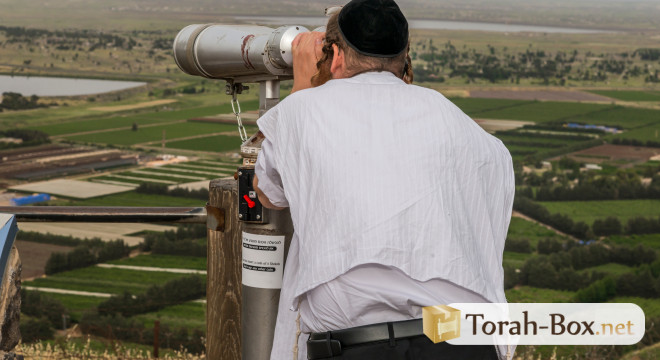
Jewish Thinking
Why Is the Land of Israel Acquired Through Hardship?
Our Sages teach us that the Land of Israel is acquired through hardship. The constraints of living in the land are widely known: terrorist attacks, the prohibitive cost of living and many more issues under different guises. But, why is this suffering necessary?
The trials allow us to clarify whether we are here for the right reasons. When someone is loyal to his beliefs, he is prepared to endure suffering to prove his sincerity. He’s ready to confront difficulties. He isn’t here just because of convenience or because he happened to be born here. He is here because this is the ultimate place for every Jew. He is here because this is the only place where a Jew can fulfill his mission on earth.
When the Torah praises the land of Israel, it uses a specific form and expression: “the land of milk and honey”. However, there are other words of praise for the land, such as: “the eyes of Hashem watch this land from the beginning of the year to the end of the year”. That is, the residents of this land benefit from constant and narrow personal protection. So why focus on the expression “flowing with milk and honey?” Many other resources abound in the land, such as olives and olive oil and almond trees in bloom. What’s the specificity of milk and honey?
In his book Likutei Halachot, Rabbi Nathan writes that amid permitted kosher foods, two stand out for their inverted qualities. Milk, which is permitted for consumption originates from blood which is strictly forbidden for consumption. Honey, which is also permitted, is produced by the bee, which is listed as a forbidden food.
The forbidden thus becomes permitted, the impure is transformed into pure. Who can operate such an inversion? Only the Creator of the universe. As quoted in the verse: “Who can render the impure pure?” And the answer is found in the following verse (Job 14.4), “Isn’t that the only One, blessed be He?” (Only the living God, Creator of the Universe can accomplish this inversion).
Rabbi Nathan goes on to explain that this is one of the virtues of the land of Israel. It manifests the faculty of purifying every person who resides there. And for this reason, the expression: “the land flowing with milk and honey” is so ad hoc. Just like these two nutrients are God’s creation, so can the Almighty transform impurity into purity. The same goes for the land of Israel, which can also render the impure pure. Thus, our Sages write: ”People who inhabit the land of Israel, their faults are contained”. The fact of inhabiting this land cleans the faults of its residents. However, as stressed by our commentators, this applies only to one who remains in the land despite his suffering. It applies to someone who lives in the land because he believes in its sacred character, and he applies himself to living his life according to the will of Hashem and the sanctity of the land.
Rabbi Nathan quotes several customs related to milk and honey and their link to the transformation from impure to pure.
On Rosh Hashanah we eat an apple dipped in honey. Why honey in particular?
Rosh Hashanah is the first of the ten days of Teshuvah. It’s an opportunity to remind us that only the Creator of the universe, whose reign we claim on this date, has the power to transform our impurities and make them pure; He can purify our faults. Of course, we must do our part but the unique living God has our backs and only He can complete the task.
And, as explained by Rabbi Nathan, this is the reason we eat milk products on Shavuot. Again, a pertinent question is asked: “Who can claim to be pure enough to receive the Torah?” How can we achieve such an elevated mission? Dairy products are here to remind us that we are not alone. Milk, which originated from blood, a taboo product for kosher eating, was transformed by God’s will into a permitted food. At the awesome time of the gift of the Torah, we were supported all along on this elevated mission to observe the Torah. One helped us, purified us and made us apt to the challenge.
“A land flowing with milk and honey”. May we merit this fabulous inversion that the land can operate within us!”
With gratitude to Moshe Perez
Torah-Box.net Account
To access the entire Torah-Box.net website, sign up for free in less than a minute.
Weekly Parsha
 Candle Lighting - New York
Candle Lighting - New York
Friday December 26th, 2025 at 16:16 *Shabbat ends at 17:22 *
change my location
* Times given as an indication, check the times of your community











